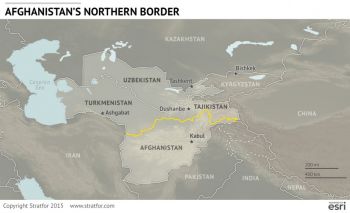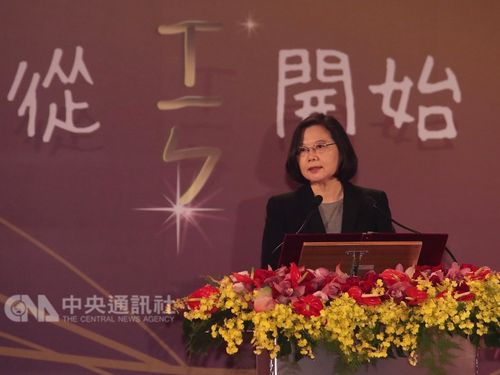Anadolu Agency (15 January 2019)
Bosnia and Herzegovina has failed to form a government in over 100 days since the general elections on Oct. 7.
The complex political structure that the Dayton Peace Agreement brought to the country plays an active role in the failure of the formation in a short period of time.
Bosnia and Herzegovina consists of two entities -- the Federation of Bosnia and Herzegovina (FBiH) and the Republika Srpska (RS). FBiH consists of 10 cantons that have their own parliaments and governments, while there is also a Council of Ministers -- the highest council in the country.
Following the announcement of the official election results, political parties that have seats in the canton, entity and state parliaments began coalition negotiations to establish a majority in the parliament as well as to form a government.
While the majority of the state-level Council of Ministers could not be established in the parliament, the majority of the parties continue to negotiate with each other.
Government formed in RS
At the level of the entities, a government has been formed only in the RS so far .
Bagging 31 percent of the votes in the RS, Milorad Dodik's Alliance of Independent Social Democrats (SNSD) has played an important role in the success of the establishment of government.
While eight of the 16 ministers in the government were chosen from SNSD, government was formed alongside the Socialist Party (SP), Democratic People's Alliance (DNS), National Democratic Movement (NDP) and Democratic Alliance (DEMOS).
The other entity FBiH is yet to form a new government, while only three out of its 10 cantons managed to kick off their own new governments.
In the Sarajevo Canton, the government was successfully formed with the coalition of six political parties. The Democratic Action Party (SDA) was not included in the government despite getting the majority of the votes.
The SDA was left out again in the new government of Una-Sana Canton even though it got the most votes.
After the last parliamentary elections on Oct. 12 in 2014, the state-level government was formed in 5.5 months, while it took 16 months after the 2010 elections.
Read more; https://www.aa.com.tr/en/europe/bosnia-herzegovina-fails-to-form-govt-in-over-3-months/1365249
No comments yet.
- DAVOS FORUM OPENS DEBATE TO RETHINK MULTILATERALISM Europe - EU 16.01.2019
-
 TURKMENISTAN REPORTEDLY REGISTERS RESERVISTS AMID TENSIONS ON AFGHANISTAN BORDER
Asia - Pacific
16.01.2019
TURKMENISTAN REPORTEDLY REGISTERS RESERVISTS AMID TENSIONS ON AFGHANISTAN BORDER
Asia - Pacific
16.01.2019
- ITALY AND IMMIGRATION: EUROPE’S ACHILLES’ HEEL Europe - EU 16.01.2019
-
 TAIWAN MUST COPE FIRMLY WITH CHANGING CIRCUMSTANCES: TSAI
Asia - Pacific
16.01.2019
TAIWAN MUST COPE FIRMLY WITH CHANGING CIRCUMSTANCES: TSAI
Asia - Pacific
16.01.2019
- AZERBAIJAN TO ATTEND NATO MILITARY COMMITTEE MEETING The Caucasus and Turkish-Armenian Relations 16.01.2019
-
25.01.2016
THE ARMENIAN QUESTION - BASIC KNOWLEDGE AND DOCUMENTATION -
12.06.2024
THE TRUTH WILL OUT -
27.03.2023
RADİKAL ERMENİ UNSURLARCA GERÇEKLEŞTİRİLEN MEZALİMLER VE VANDALİZM -
17.03.2023
PATRIOTISM PERVERTED -
23.02.2023
MEN ARE LIKE THAT -
03.02.2023
BAKÜ-TİFLİS-CEYHAN BORU HATTININ YAŞANAN TARİHİ -
16.12.2022
INTERNATIONAL SCHOLARS ON THE EVENTS OF 1915 -
07.12.2022
FAKE PHOTOS AND THE ARMENIAN PROPAGANDA -
07.12.2022
ERMENİ PROPAGANDASI VE SAHTE RESİMLER -
01.01.2022
A Letter From Japan - Strategically Mum: The Silence of the Armenians -
01.01.2022
Japonya'dan Bir Mektup - Stratejik Suskunluk: Ermenilerin Sessizliği -
03.06.2020
Anastas Mikoyan: Confessions of an Armenian Bolshevik -
08.04.2020
Sovyet Sonrası Ukrayna’da Devlet, Toplum ve Siyaset - Değişen Dinamikler, Dönüşen Kimlikler -
12.06.2018
Ermeni Sorunuyla İlgili İngiliz Belgeleri (1912-1923) - British Documents on Armenian Question (1912-1923) -
02.12.2016
Turkish-Russian Academics: A Historical Study on the Caucasus -
01.07.2016
Gürcistan'daki Müslüman Topluluklar: Azınlık Hakları, Kimlik, Siyaset -
10.03.2016
Armenian Diaspora: Diaspora, State and the Imagination of the Republic of Armenia -
24.01.2016
ERMENİ SORUNU - TEMEL BİLGİ VE BELGELER (2. BASKI)
-
AVİM Conference Hall 24.01.2023
CONFERENCE TITLED “HUNGARY’S PERSPECTIVES ON THE TURKIC WORLD"









